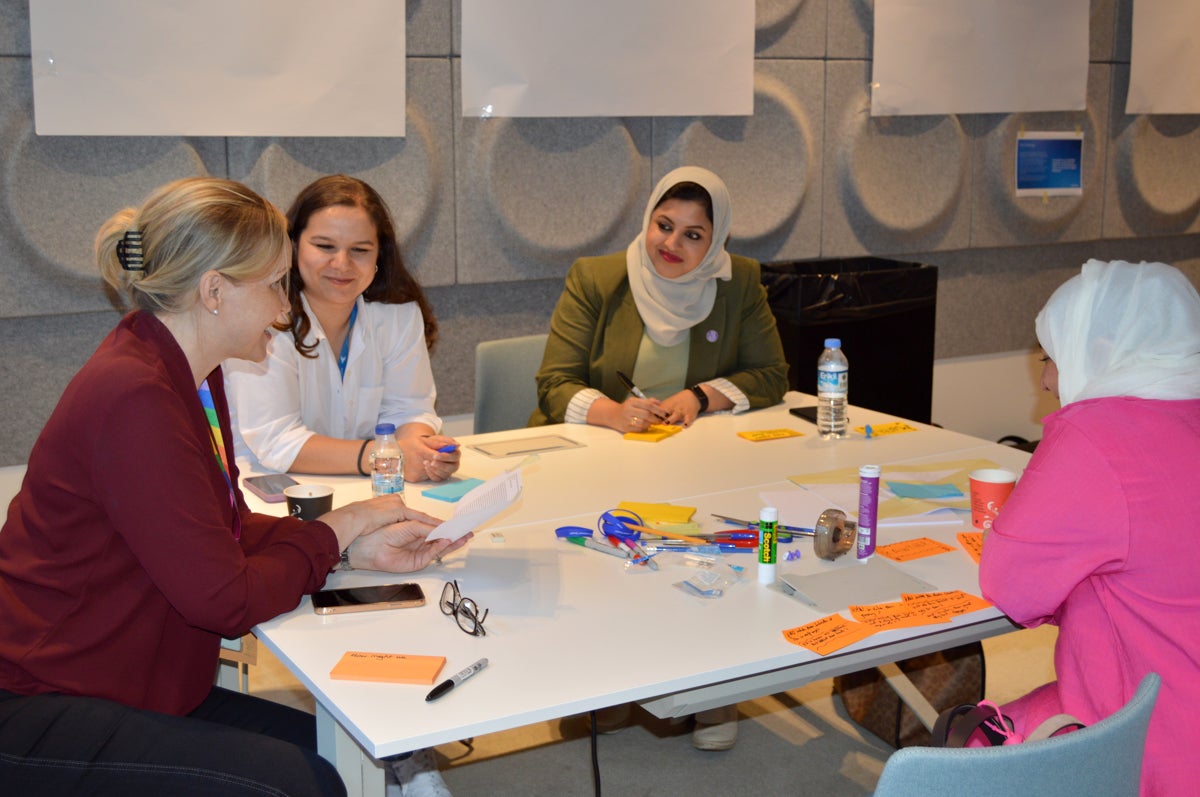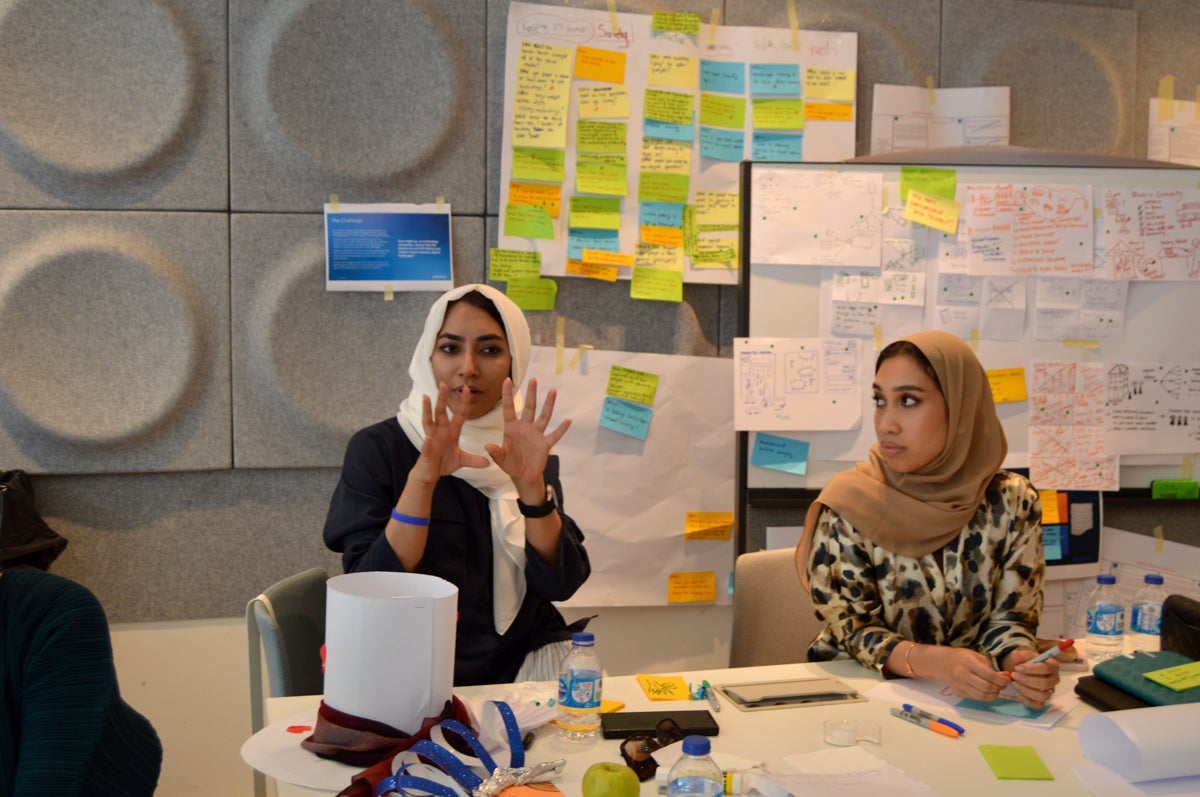UN Women support the Nokia – du Action for Leadership Sprint Workshop
Date:

Between 25 and 27 June 2024, 20 female talents from Nokia and du came together for the design sprint workshop to create prototypes for sustainable business solutions to the challenge: “How might we, as technology companies, ensure that the elderly are not left behind, and create a more inclusive digital landscape?”.
In line with the global partnership between UN Women and Nokia, UN Women briefed the joint Nokia – du team on the sustainable development and gender equality perspectives on this topic. Conscious and / or unconscious bias against women during their lifetime has amplified gendered consequences for women in old age e.g. access to effective medical treatment, pay gaps, ownership of assets, education attainment, access to mobile phones and the internet. Lack of confidence in navigating ever-evolving technologies can leave elderly women at particular risk of isolation from the economic, cultural and social aspects of modern life. Additionally, widespread expectations that the family will care of their elderly relatives leaves them potentially vulnerable to neglect and abuse, while conversely, they may also be at increased risk of isolation and safety concerns due to reduced independence. Elderly women also frequently face expectations that they will continue to perform a caregiver role in the family. At the same time, UN Women research indicates that women in the Arab States region spend 4.7 times as long on unpaid care-work as men. As the population ages, sustainable solutions that respect the rights of women and men of all ages are essential.

UN Women encouraged the teams to consider intersectionality in selecting the customer-focused problem to solve. Intersectional analysis looks at how multiple risk factors interplay and increase vulnerability of certain groups and sub-groups, in thus case for example age + gender + geographic location + education level + family context and so forth. The use of intersectional analysis in problem-solving facilitates a better understanding of the context and appropriate solutions; more effective identification of targeted groups, their rights and priorities; and more inclusive and responsive policymaking and service delivery.
The private sector has a vital role to play in achieving Agenda 2030 for Sustainable Development and SDG 5: Achieve gender equality and empower all women and girls. Telecommunications actors such as Nokia, du and other Action for Leadership partners in the Arab States region including Zain Group, STC and e&, are contributing to achieve target SDG 5.B: Enhance the use of enabling technology, in particular information and communications technology, to promote the empowerment of women.
Deemah Kayed, Nokia Global People Partner for Cloud and Cognitive Services was among the participants in the leadership training: “Participating in the Leadership in Action programme, in collaboration with UN Women, du and Nokia, was truly inspiring. Over an intense three-day period, the facilitators skillfully guided four diverse groups to not only identify intricate challenges faced by elders in the digital age, but also to craft, test and refine viable solutions. This workshop didn’t just address the digital divide, it underscored the importance of digital literacy, igniting a sense of purpose and innovation, demonstrating how collective creativity can drive profound change!”

During this workshop, female talents from both companies formed teams to identify and define a problem and a business solution, using design thinking methodology. The workshop challenged the participants to embrace their creativity, logical thinking and problem-solving skills. After defining the problem they aimed to solve from the user’s perspective, each team used creative ideation processes to develop their solution, which they then prototyped and tested with putative users. Feedback from Nokia, du and UN Women addressed both inclusion and gender equality, and business opportunity, to support the teams to enhance further their strategic sustainability thinking.